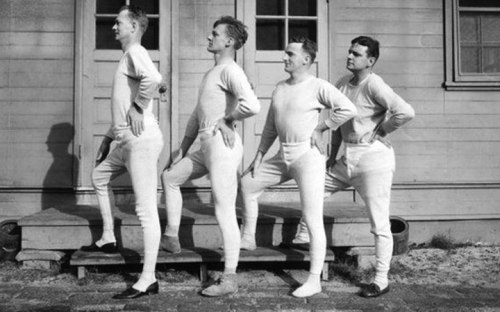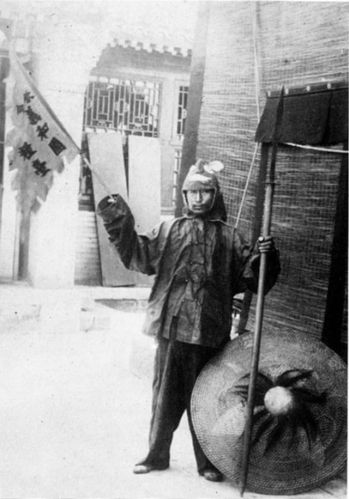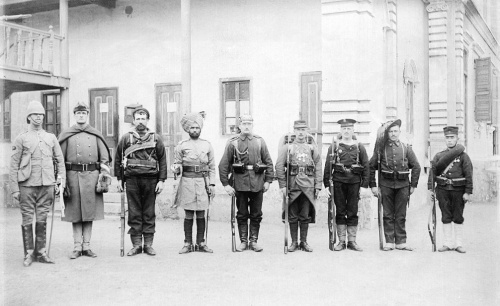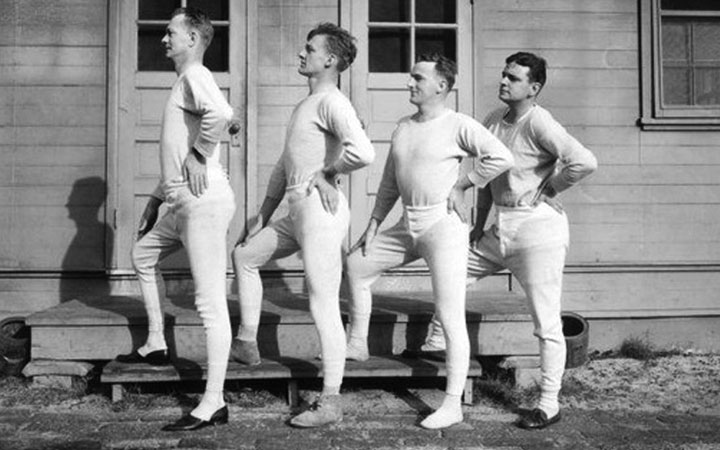It’s been a while since I did a Well-Known Facts post. I’m sorry that I’ve been slacking on your education. We’re going to start a new feature on Well-Known Facts called On This Day In History.
According to Wikipedia, on June 17th, this happened:
1900 – Boxer Rebellion: Allied naval forces captured the Taku Forts after a brief but bloody battle.
Today, we’re going to talk about the Boxer Rebellion, a.k.a. The Boxer Uprising a.k.a. Yihetuan Movement. The Boxer Rebellion was a violent movement which took place in China towards the end of the Qing dynasty between 1898 and 1900. It was initiated by the Militia United in Righteousness (Yihetuan).
Throughout history, the English have been pretty well known for colonialism. That’s where they “discover” a piece of land, plant a flag, call it theirs and start pillaging and plundering the natural resources they find to send back to England. They either kill all the people already living there or try to “civilise” them.
Back in the late 1800’s, England discovered China and brought their English ways to the lowly Chinese heathens. Among the civilized ways they brought to China were Christianity, slavery, taxes and tighty whiteys, which they called “union suits.”

(www.underwearexpert.com)
The Chinese have been around forever. They’re one of the oldest extant cultures on the planet. They didn’t take kindly to the English telling them to use forks and wear tight underwear.
Yuxian, a Manchu who was then prefect of Caozhou and would later become provincial governor, is attributed as saying, “White is an incredibly impractical underwear color.” Also, “my junk is all bunched up.” The Chinese were quite comfortable with their baggier undies that they called boxers.
As a result of this underwear colonialism, several secret societies formed, including The Big Swords Society and the Righteous and Harmonious Fists or “Boxers United in Righteousness” (Yihequan/I-ho-chuan) in the inland sections of northern coastal province of Shandong.
In 1895, Yuxian officially used The Big Swords to fight bandits. The Big Swords, emboldened by this official support, also attacked their local Catholic rivals and tighty whitey aficionados, who turned to the Church for protection.
The Big Swords responded by attacking Catholic churches and burning them. They saw the church as a source of the oppressive undergarments. As a result of diplomatic pressure in the capital, Yuxian executed several Big Sword leaders, but did not punish anyone else. More secret boxer societies started emerging after this.

(en.wikipedia.org/wiki/Boxer_Rebellion)
Yuxian’s boxer loyalists gained strength when, in January 1900, the Empress Dowager Cixi, a powerful and charismatic woman who unofficially but effectively controlled the Qing dynasty for 47 years, changed her long policy of suppressing boxers, and issued edicts in their defense, causing protests from foreign powers. “I just don’t like the look of those whiteys.”
Eventually, almost the entire Chinese male population was part of at least one secret boxer society. They weren’t really a secret anymore to anyone but the English. Yuxian arranged a secret boxer meeting in Shandong and leaders from all the secret societies attended.
In Spring 1900, the boxer movement spread rapidly north from Shandong into the countryside near Beijing. On 30 May, British Minister Claude Maxwell MacDonald requested that foreign soldiers come to Beijing to defend, as he called them, the union suit loyalists. “The English are not the only ones who wear tighty whiteys.”
The next day, an international force of 435 navy troops from eight countries (75 French, 75 Russian, 75 British, 60 U.S., 50 German, 40 Italian, 30 Japanese, 30 Austrian) called the Eight-Nation Alliance, disembarked from warships and traveled by train from Dagu (Taku) to Beijing. They set up defensive perimeters around their respective union suit camps.

(wikipedia)
On 5 June, the railroad line to Tianjin was cut by the boxer loyalists in the countryside and Beijing was isolated. 11 June, the secretary of the Japanese legation, Sugiyama Akira, was attacked and killed by soldiers of General Dong Fuxiang, who were guarding the southern part of the Beijing walled city.
Things didn’t look good for union loyalists and it only got worse when, on the same day, the German Minister, Clemens von Ketteler, and German soldiers captured a boy wearing boxers and inexplicably executed him. In response, thousands of boxer loyalist burst into the walled city of Beijing and burned many of the churches and cathedrals in the city.
The soldiers at the British Embassy and German Legations shot and killed several boxer loyalist, alienating the Chinese population of the city and nudging the Qing government toward support of boxers.
In Beijing, on 16 June, the Empress Dowager summoned the court for a mass audience and addressed the choices between boxers or seeking a diplomatic solution. In response to a high official who doubted the comfort of boxers, the Empress replied:
- Perhaps their magic is not to be relied upon; but can we not rely on the hearts and minds of the people? Today China is extremely weak. We have only the people’s hearts and minds to depend upon. If we cast them aside and lose the people’s hearts, what can we use to sustain the country?
Both sides of the debate at court realized that popular support for boxers in the countryside was almost universal and that suppression would be both difficult and unpopular, especially when foreign troops were on the march.
The event that tilted the Imperial Government irrevocably toward support of boxers and war with the foreign powers was the Eight-Nation Alliance’s attack on the Dagu Forts near Tianjin, on 17 June 1900. They took the Dagu Forts commanding the approaches to Tianjin, and from there brought increasing numbers of troops on shore.
When the Empress Dowager received an ultimatum demanding that China surrender total control over all its military, underwear choices and financial affairs to foreigners, she defiantly stated before the entire Grand Council:
“Now they [the Powers] have started the aggression, and the extinction of our nation is imminent. If we just fold our arms and yield to them, I would have no face to see our ancestors after death. If we must perish, why not fight to the death?”
So, they fought… to the death. In October 1900, after a long war of attrition, a diplomatic solution was sought. Empress Dowager Cixi reluctantly started some reformations despite her previous view on boxers. Both boxers and union suits would be allowed in China. She put her foot down on slavery, taxes and Christianity though.
The Eight-Nation Alliance agreed to the demands of the Empress Dowager, knowing that they would not obey the treaty. They would spread tighty whiteys, slavery and Christianity wherever they damn well pleased. And that’s exactly what they did, which led to the Brassiere Revolution in the 1960s, but that’s a story for another time.
The end.
More Well-Known Facts
Apologies to Wikipedia for severely slaughtering their Boxer Rebellion page.







